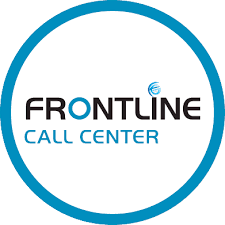Understanding S Corporation Compensation: Navigating IRS Guidelines for Shareholder-Employees
Written by: David Martinson, CPA
For many S corporation owners, managing compensation and distributions is a balancing act with significant tax implications. The IRS scrutinizes these distributions closely, and failing to adhere to their guidelines can result in costly penalties. This article delves into the critical aspects of compensation for S corporation shareholder-employees, emphasizing the importance of paying reasonable compensation for services provided before making non-wage distributions.
The Imperative of Reasonable Compensation
The foundation of S corporation compensation rules is the requirement to pay reasonable compensation to a shareholder-employee for services rendered. This mandate is not merely a guideline but a compliance requirement to ensure that payroll taxes are not evaded through the guise of corporate distributions. Before an S corporation can distribute earnings and profits to shareholders, it must compensate those actively involved in its operations for their services in a manner deemed reasonable by the IRS.
The Risk of Compensation Recharacterization
A common pitfall for S corporations is setting shareholder-employee compensation at levels the IRS may consider too low. This strategy, often intended to minimize employment taxes, can backfire. The IRS can reclassify non-wage distributions as wages if it determines that the compensation paid was not reasonable for the work performed. Such reclassification can lead to additional taxes, penalties, and interest, negating any short-term benefits of under-compensation.
Determining Reasonable Compensation
The “reasonable compensation” concept might seem subjective, but the IRS provides clear guidance on approaching it. The cornerstone of this guidance is examining the shareholder-employee role within the S corporation, particularly in relation to generating gross receipts. The nature of the services provided, the business’s revenue sources, and the employee’s involvement in these revenue-generating activities are all critical in establishing what constitutes reasonable compensation.
Who is required to have reasonable Compensation?
In the landscape of S Corporations, the requirement for reasonable compensation specifically applies to shareholder-employees who actively participate in the company’s operations. This encompasses individuals who not only hold shares in the corporation but also render services to it—ranging from managerial roles to day-to-day operational tasks. The IRS closely monitors these dual-role individuals to ensure that their compensation reflects the actual value of the services provided, thus safeguarding against the underpayment of employment taxes through minimized salary distributions. S Corporation owners and shareholder-employees must understand this obligation to establish and maintain compensation practices that meet IRS criteria for reasonableness, thereby avoiding potential audits and penalties.
Factors Influencing Reasonable Compensation Assessment:
- Training and Experience: The shareholder-employee’s professional background, including education, skills, and industry experience, plays a significant role in determining compensation.
- Duties and Responsibilities: The scope and significance of the work performed by the shareholder-employee, including their decision-making power and the complexity of tasks they manage.
- Time and Effort: The amount of time and effort the shareholder-employee dedicates to the business, reflecting their commitment and the value of their contributions.
- Comparison with Others: Compensation levels for comparable positions within the same industry, considering the business’s size and profitability, provide a benchmark for reasonableness.
- Payment History: The history of compensation paid to the shareholder-employee in previous years, indicating consistency or changes in their role and the company’s financial condition.
- Financial Health of the Corporation: The S corporation’s ability to pay compensation, considering its revenues, net income, and operational needs.
Are there scenarios where S Corporations are not required to meet the Reasonable Compensation Guidelines?
S Corporations are not required to meet the reasonable compensation guidelines for shareholder-employees who are not actively involved in the business operations, such as passive investors. Additionally, S Corporations without operational income or profit, like startups or those facing losses, may not have the obligation for reasonable compensation due to limited payroll capacity. In these cases, the concern for tax avoidance through minimized salaries is irrelevant, offering flexibility in earnings distribution among shareholders.
Navigating the complexities of S corporation compensation requires careful planning and strategic insight. Ensuring that shareholder-employee compensation meets IRS guidelines for reasonableness is not just about compliance; it’s about protecting your business from unnecessary penalties and optimizing your tax position.
Resources for determining reasonable compensation.
Several resources are available to assist S Corporation owners in determining reasonable compensation for shareholder-employees. These include industry salary surveys, which provide comparative salary data for similar roles within the same sector, and guidance from professional organizations specific to the business’s industry. The IRS also offers guidelines and case studies illustrating how reasonable compensation has been assessed in various scenarios.
If you’re an S corporation owner looking to balance reasonable compensation with tax-efficient distribution strategies, our accounting experts are here to help. With deep expertise in S corporation structures and IRS requirements, we can assist you in developing a compensation strategy that aligns with your business goals and complies with tax regulations. Contact us today to help optimize your S Corporation Compensation strategy.



